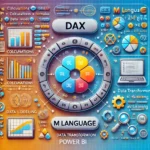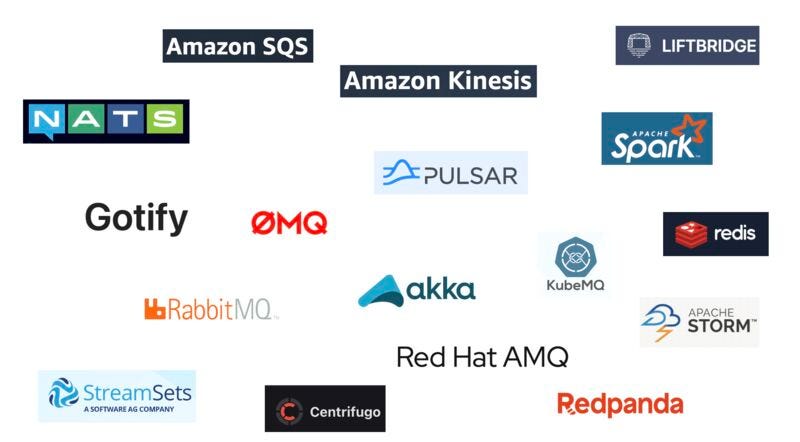In today’s digital age, data has become one of the most valuable assets for businesses across various industries. The ability to handle and process data in real-time is essential for enabling effective decision-making and enhancing user experiences. This is where Apache Kafka and its alternatives come into play. Apache Kafka has been a game-changer in the realm of stream processing, but there are other powerful tools available as well. In this blog post, we will dive into Apache Kafka’s features and explore nine alternative stream processing platforms.
What is Apache Kafka?
Apache Kafka is an open-source distributed event streaming platform developed by the Apache Software Foundation. Originally conceived at LinkedIn, it was created to handle real-time data feeds and process them in a fault-tolerant and scalable manner. Kafka is designed to handle high throughput and provides low-latency data processing, making it an excellent choice for building real-time data pipelines and streaming applications.
Key Features of Apache Kafka
Publish-Subscribe Model
Kafka follows a publish-subscribe model, where producers publish data to specific topics, and consumers subscribe to these topics to receive data.
Scalability and Fault Tolerance
Kafka is distributed by design, allowing it to scale horizontally and maintain fault tolerance through replication.
High Throughput
Kafka can handle a massive volume of messages per second, making it suitable for high-velocity data streams.
Durability
Data is persisted on disk and can be replayed, ensuring data availability even in the event of failures.
Real-Time Processing
Kafka processes data in real-time, enabling instant data analysis and response.
Connectivity
It offers easy integration with various data sources and sinks through Kafka Connect.
Ecosystem Support
Kafka has a rich ecosystem with various tools, including Kafka Streams for stream processing, Kafka Connect for data integration, and Schema Registry for data schema management.
https://synapsefabric.com/2023/07/20/top-10-java-alternatives-which-is-the-best/
Nine Apache Kafka Alternatives
Apache Pulsar
Developed by Yahoo and later open-sourced, Apache Pulsar is a highly scalable and durable messaging system. It offers multi-tenancy support and seamless data partitioning, making it a robust alternative to Kafka.
RabbitMQ
RabbitMQ is a mature message broker that supports multiple messaging protocols. It is easy to set up and is well-suited for traditional message queuing use cases.
Apache Flink
Although primarily known as a stream processing engine, Flink can also handle event streams. It provides low-latency processing and supports event time processing with built-in fault tolerance.
Amazon Kinesis
A part of Amazon Web Services (AWS), Amazon Kinesis is a cloud-based platform for real-time data streaming. It provides three services: Kinesis Data Streams, Kinesis Data Firehose, and Kinesis Data Analytics.
Apache Storm
Apache Storm is a distributed real-time stream processing system. It is highly scalable, fault-tolerant, and supports various programming languages.
Google Cloud Pub/Sub
Google Cloud Pub/Sub is a fully-managed messaging service that enables real-time event ingestion and delivery. It integrates seamlessly with other Google Cloud services.
NATS Streaming
NATS Streaming is built on top of the NATS messaging system, providing features like message persistence and at-least-once delivery. It is lightweight and suitable for simple streaming scenarios.
https://synapsefabric.com/2023/07/19/exploring-top-ide-alternatives-to-visual-studio-for-enhanced-coding-experience/
Apache Samza
Apache Samza is a stream processing framework that tightly integrates with Apache Kafka. It offers strong durability guarantees and simple deployment options.
Microsoft Azure Event Hubs
Part of the Azure platform, Azure Event Hubs is a real-time data streaming service capable of handling and processing massive event streams with low latency.
Apache Kafka has undoubtedly revolutionized the way we handle real-time data streams and build scalable streaming applications. Its features, such as high throughput, fault tolerance, and real-time processing, have made it a popular choice among developers. However, as the landscape of stream processing evolves, various alternatives have emerged to cater to diverse needs and preferences.
When choosing the right stream processing platform, factors like scalability, ease of use, integration capabilities, and cloud support play a crucial role. Each alternative mentioned above has its strengths and unique use cases, so it’s essential to carefully evaluate your requirements before making a decision.
Whether you opt for Apache Kafka or one of its alternatives, embracing the power of stream processing can elevate your data-driven applications to new heights, providing real-time insights and enhancing user experiences.







